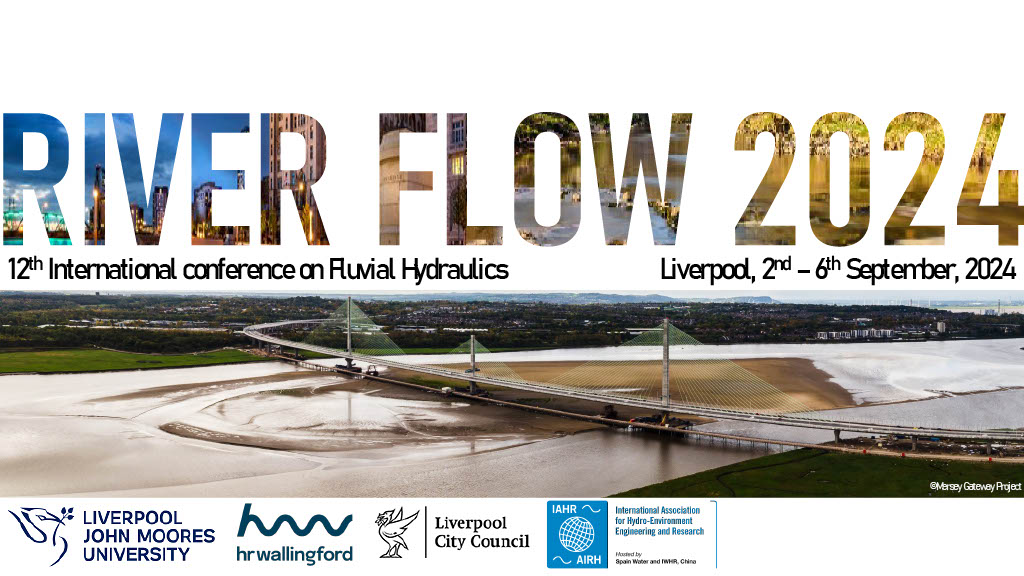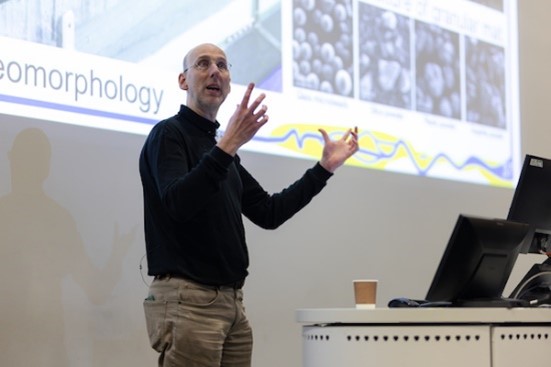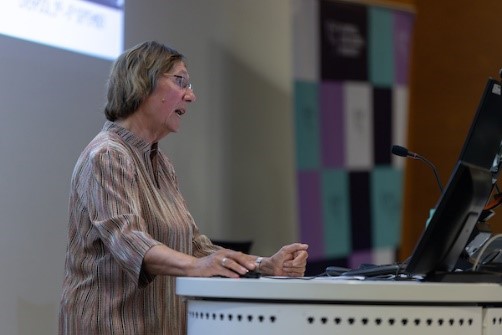Report from River Flow 2024 now available!
This report provides a summary of the activities and an overall overview of 12nd International Conference on Fluvial Hydraulics, River Flow 2024. The conference has been organized since 2002 by the IAHR Fluvial Hydraulic Committee, and it is hosted every two years by a different university with the scope of allowing a balance access worldwide. The series is one of the main international forums for the dissemination of research and industrial practice on fluvial hydraulics and river engineering, and it has been trying to widen its remits to other research areas, like biology, geomorphology, soil mechanics and oceanography.
For this year, River Flow 2024 has been hosted in Liverpool between the 2nd of September and the 6th of September, by Liverpool John Moores University with the support of HR Wallingford and the Liverpool City Council. This was the first conference fully in person after the last two editions, which were online.
It covered thematic areas related to:
River morphodynamics and management
Hydraulic structures and their impacts on local and catchment sediment transport
Flow regimes and ecology, and sediment, pollutant, and microplastic dynamics in rivers
Fluid mechanics, numerical modelling, and two-phase flow
In addition to more classical themes, the conference also introduced topics related to:
Climate change and adaptation
Monitoring techniques and artificial intelligence
Natural flood management, vegetation, wood and river restoration, organized by Virginia Ruiz-Villanueva
We initially received around 300 abstracts. Of these 230, followed up with a full manuscript or an extended abstract and were reviewed by around 70 reviewers across the various themes.
The conference had 230 delegates registered, with a participation of around 200 delegates every day, from around 130 institutions from 28 countries worldwide. We had about 60 delegates registered as IAHR members, 85 students, and around 15 delegates registered as LIC countries, which were provided a reduced fee to facilitate their access.
As per River Flow tradition the 2024 edition featured a day devoted to Master Classes for young researchers in flood management, plastic transportation, climate change and adaptation, numerical modelling, and natural flood management (NFM) and river restoration. The conference also featured a short course on shallow mixing interfaces and their role in controlling flow, mixing, and sediment transport at river confluences, held across two days prior to the conference opening. In total, we had around 40 students across the various activities.
This is an integral and important part of the conference:
The use of agent-based models to improve the emergency management of floods, led by Darren Lumbroso and Mark Davison, HR Wallingford
Mechanics of plastic transport in rivers, led by Mário J. Franca, Karlsruhe Institute of Technology, Germany, Kryss Waldschlager, Wageningen University and Research, The Netherlands, Daniel Valero, Imperial College, London
Numerical modelling of suspended particles in fluid flow led by Nils R Olsen and Elena Pummer, Norwegian University of Science and Technology, NTNU
Natural Flood Management, vegetation, wood, and river restoration led by Virginia Ruiz-Villanueva, University of Bern (Switzerland) and Annie Ockelford, University of Liverpool (UK)
Short Courses in Shallow mixing interfaces and their role in controlling flow, mixing and sediment transport at river confluences, co-organized by the IIHR Fluvial Hydraulics Committee (Prof. George Constantinescu, Univ. Iowa, USA) and the IIHR Fluid Mechanics Committee (Prof. Vlad Nikora, Univ. Aberdeen, U.K.). Dr. Sebastien Proust (INRAE, France). Prof. Carlo Gualtieri (Univ. Federico II Naples, Italy)
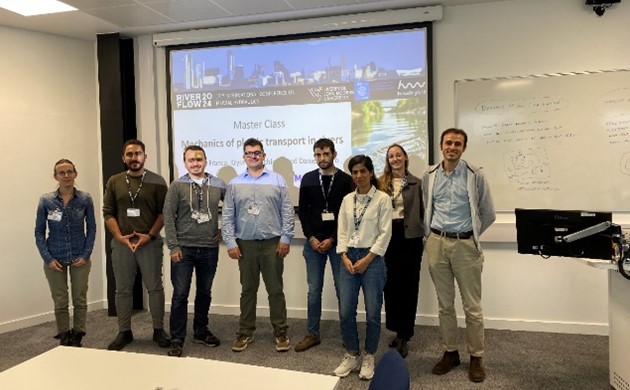
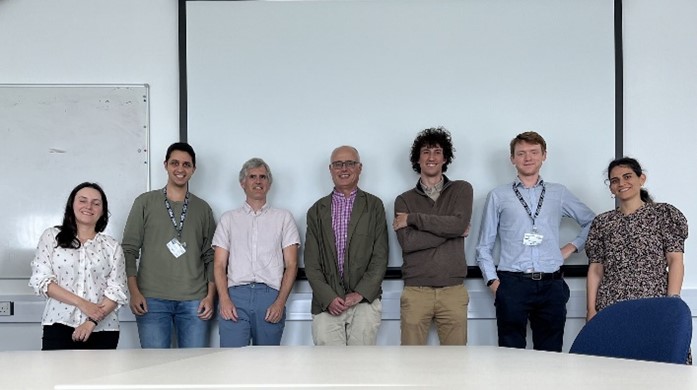
In parallel with River Flow, we also hosted the 7th IAHR/WMO/IAHS International Stream Gauging Course, led by Alexandre Hauet (EDF and Grenoble Alpes University, France), Marian Muste (IIHR, Iowa University, USA), Dongsu Kim (Dankook University, Seoul, Korea), Olly Baldwyn (Environment Agency, UK), and Jérôme Le Coz (INRAE, France), which provided a further occasion for academics and professionals to engage with state-of-the-art technologies and experts. This was attended by around 33 students and started two days before the beginning of the master classes, which meant that all the students had later on the change meet each other during the networking event. It was very well received and the feedback on the various activities and the organization and topic covered was very well received.
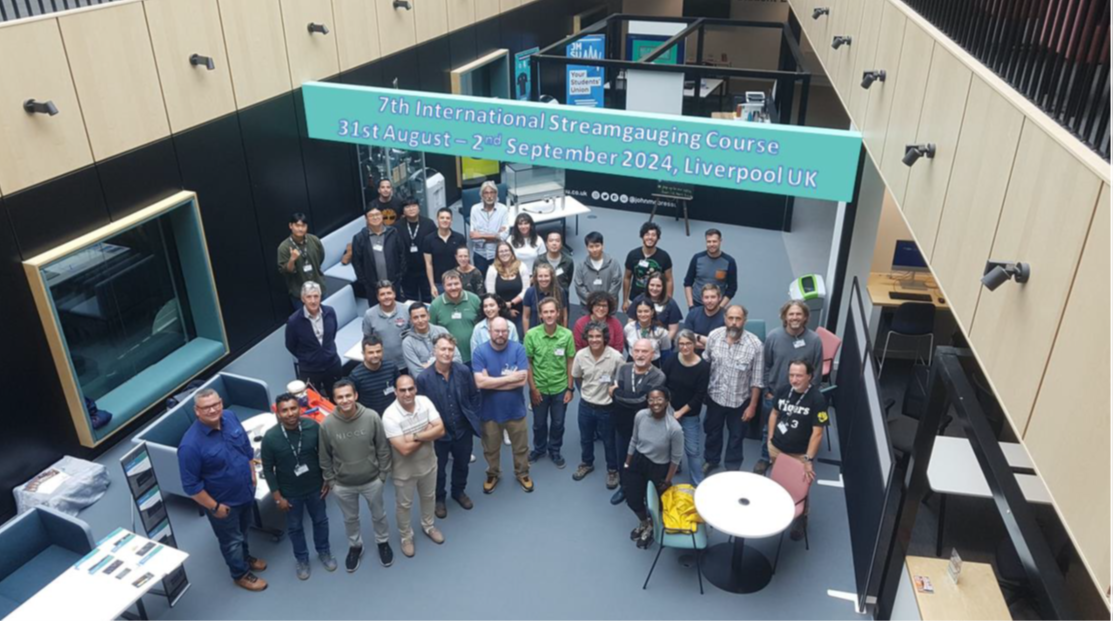
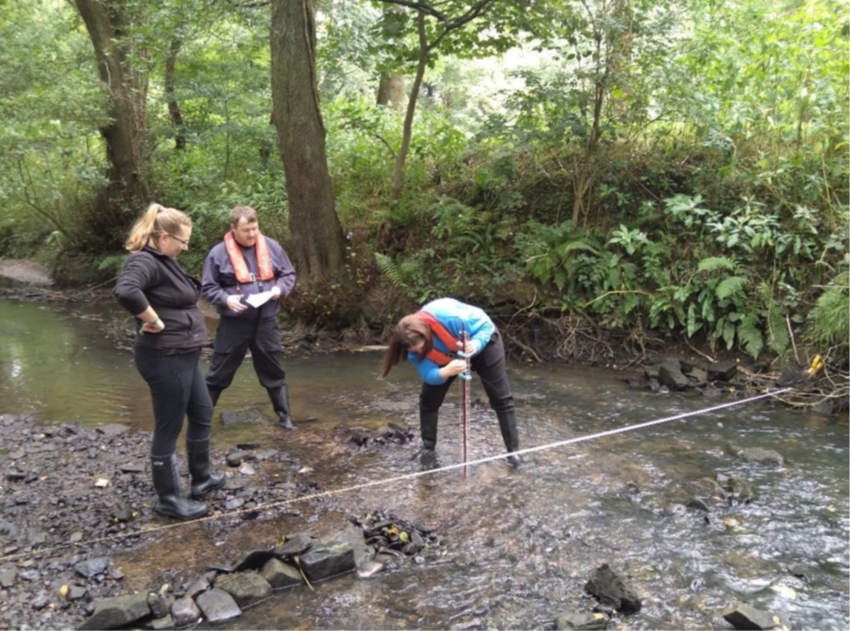
We had three keynote speakers presenting their work in various important thematic areas, including physical and numerical modelling and field research.
Prof. Viparelli presented her insight on “Bankfull geometry of self-formed, single thread sand bed rivers with a leaky floodplain, preliminary results” where she showed the use of large-scale conceptual model for understanding the sediment transport process between main rivers and floodplains.
Prof. Kleinhans presented an exceptional work on physical modelling of estuaries using his metronome flume with a paper called “Turning the tide: estuaries and their floodplains as complex biogeomorphic systems”. This provided new understanding also on the role played by vegetation in controlling erosion and extending the works of the conference to areas affected by tidal forcing.
The last keynote has seen Prof. Hooke presenting a summary of several years of field work on “Vegetation-river flow interactions in two contrasting environments”, demonstrating again the role of vegetation on ephemeral and perennial rivers.
The keynote presentations once again highlighted the complexity of riverine systems, emphasizing the need for different approaches to break down various components and better understand the overall process, while also demonstrating the potential for further research.
The parallel sessions ran after the master classes during 3 days of conference. Around 180 presentations were scheduled across the 7 thematic area in 48 parallel sessions of 1h30 minutes slots. Each presentation was schedule for 15 minutes plus 5 minutes Q&A. To provide the opportunity to engage in productive and meaningful discussions for all the works submitted, whether by students, young researchers, or experienced academics, we scheduled all papers as oral presentations.
The Stream gauging course and the conference were sponsored by Fathom, Sommer, Teledyne RDI, vortex-IO, SEBA, UBERTONE, United Utilities, Ribble River Trust and the Low Carbon Eco-Innovatory, who provided funding and were there to enable attendees to get to know more about them.
Thanks to the contribution of the LOC and the IAHR Taskforce on Strengthening Diversity and Gender Equity, we hosted the first River Flow “Networking and Mentoring Event: Embracing Gender Equity and Diversity”. We invited five speakers (Prof. Amparo López Jiménez, Dr Kamalini Devi, Dr. Blanca Marin-Esteve, Amalia Wijayanti and Prof. Rita F. Carvalho) from diverse nationality, background and career stages that shared their personal experiences, respond to questions, and initiate the conversation around mentoring opportunities and enabling access to delegates with caring responsibility. The event also served also as an opportunity for the conference reception and networking to maximize the participation during the discussion.
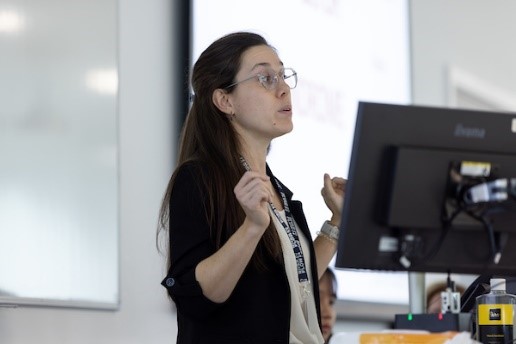
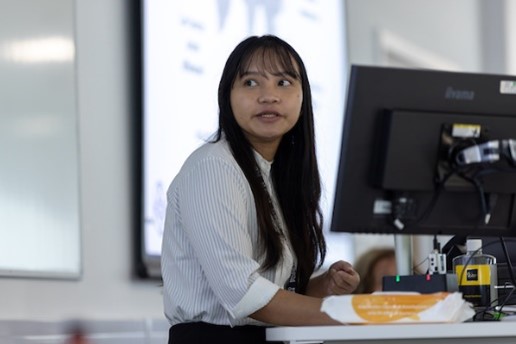
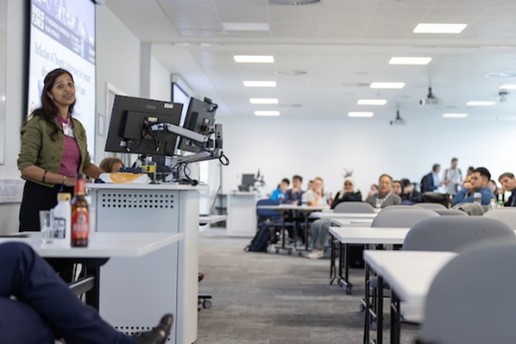
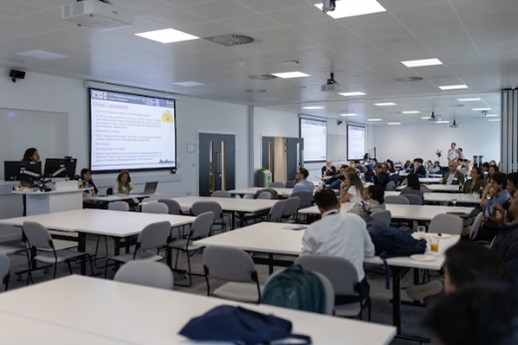
On the 4th of September we had the Fluvial Hydraulic Committee meeting, that involved a summary of River Flow 2024, various discussions on the next conference, and the elections of future member of the committee. Finally, on the last day of the conference Prof. Wilson extended an invitation to all the delegates to attend the workshop on NFM solutions and a discussion has taken place on how to extend this to the next IAHR in Shanghai and the thematic areas that could be explored and covered.
During the closing ceremony, we presented the Stephen E. Coleman Award, which distinguished the best paper first-authored by a young researcher, and the International Journal of River Basin Management Award. The award was handed by Prof. Termini representing the Fluvial Hydraulic Committee to Dr. James Lofty of Cardiff University for his work on “A plastic tipping point: The influence of biofouling on the settling orientation and velocity of plastics” by J. Lofty, P. Ouro & C. Wilson.
We also awarded the best the International River Basin Management Best Paper and Best Reviewer awards to Brian C. Burrell Hilcon Limited, Canada (Burrell, B. C., Beltaos, S., & Turcotte, B. (2023). Effects of climate change on river-ice processes and ice jams. Int. Journal of River Basin Management, 21(3), 421-441) and Ali Moridi ShahidBeheshti University, Iran for the best review.
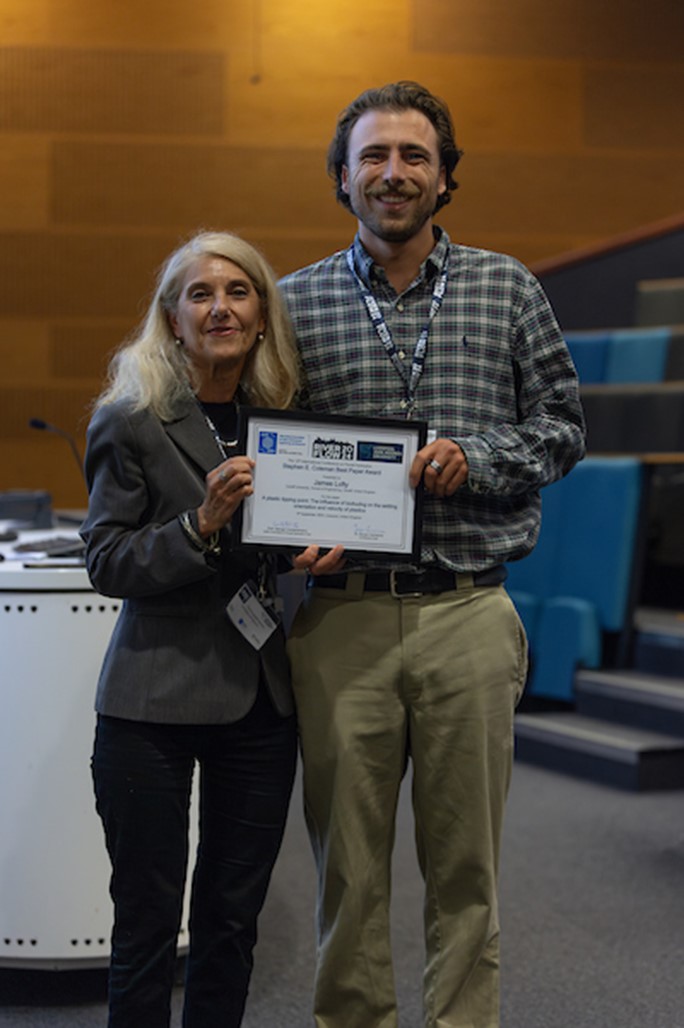
The conference dinner was held at St. George’s Hall on the 5th of September, one of the greatest landmarks of Liverpool and the United Kingdom, and it was attended by 185 delegates.

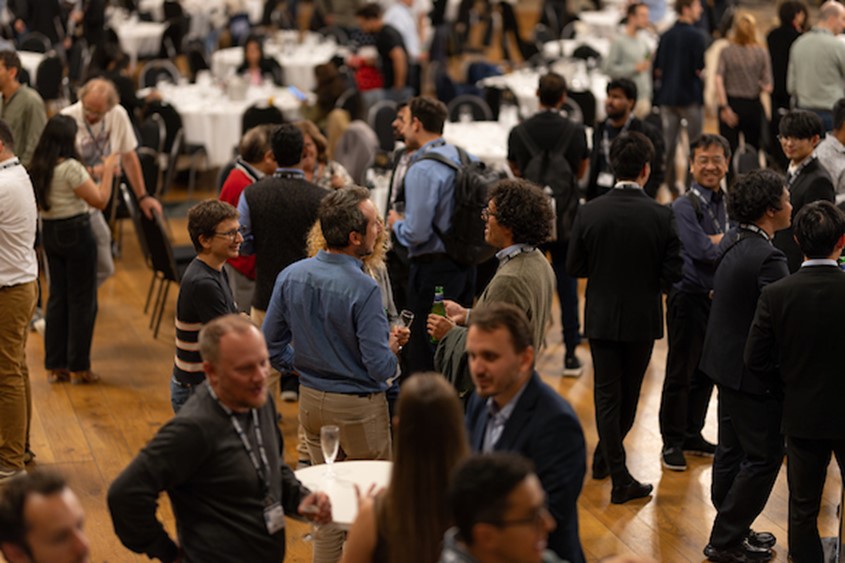
We organized two technical field trips to local areas showcasing a Victorian dam (Vyrnwy Dam in North Wales) and the new restoration and NFM solutions in the river Ribble, sponsored by United Utilities and Ribble Rivers Trust. 30 delegates had the chance to look at the historical importance of hydraulic structures built in the 19th century that are still used in the regional water supply network and to explore the practice of building leaky dams and the implication and challenges around natural flood management solution to increase flood retention and enhance the water quality and environment.
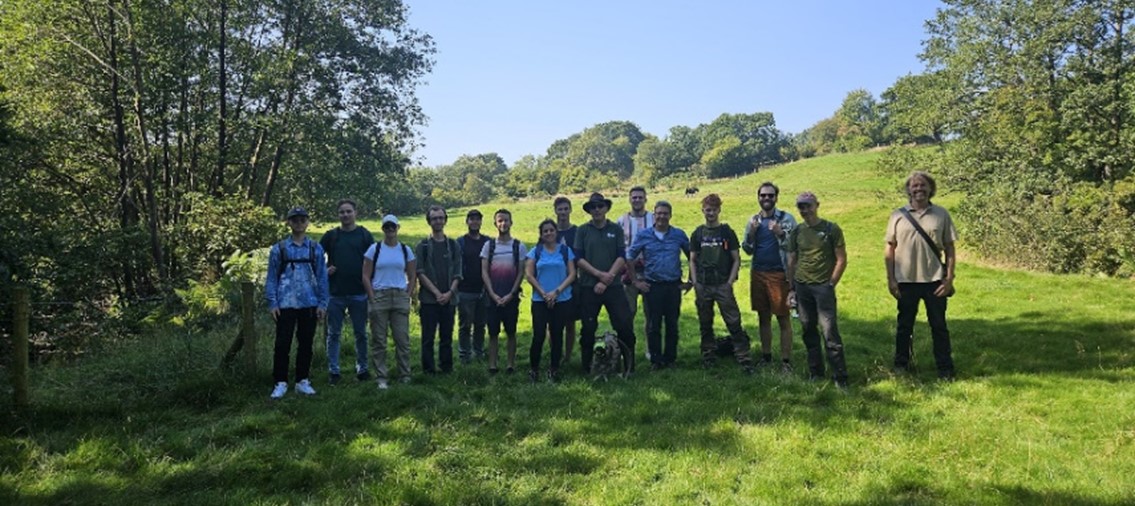
All the registered delegates will receive an electronic access to the proceedings distributed by CRC press.
The next conference will be hosted in 2026 by the Aristotle University of Thessaloniki in Greece and we wish Prof. Valyrakis, Prof Prinos and the committee wishes the best of luck and success for the next conference (https://riverflow2026.web.auth.gr/).
River Flow 2024 Local Organization Committee
